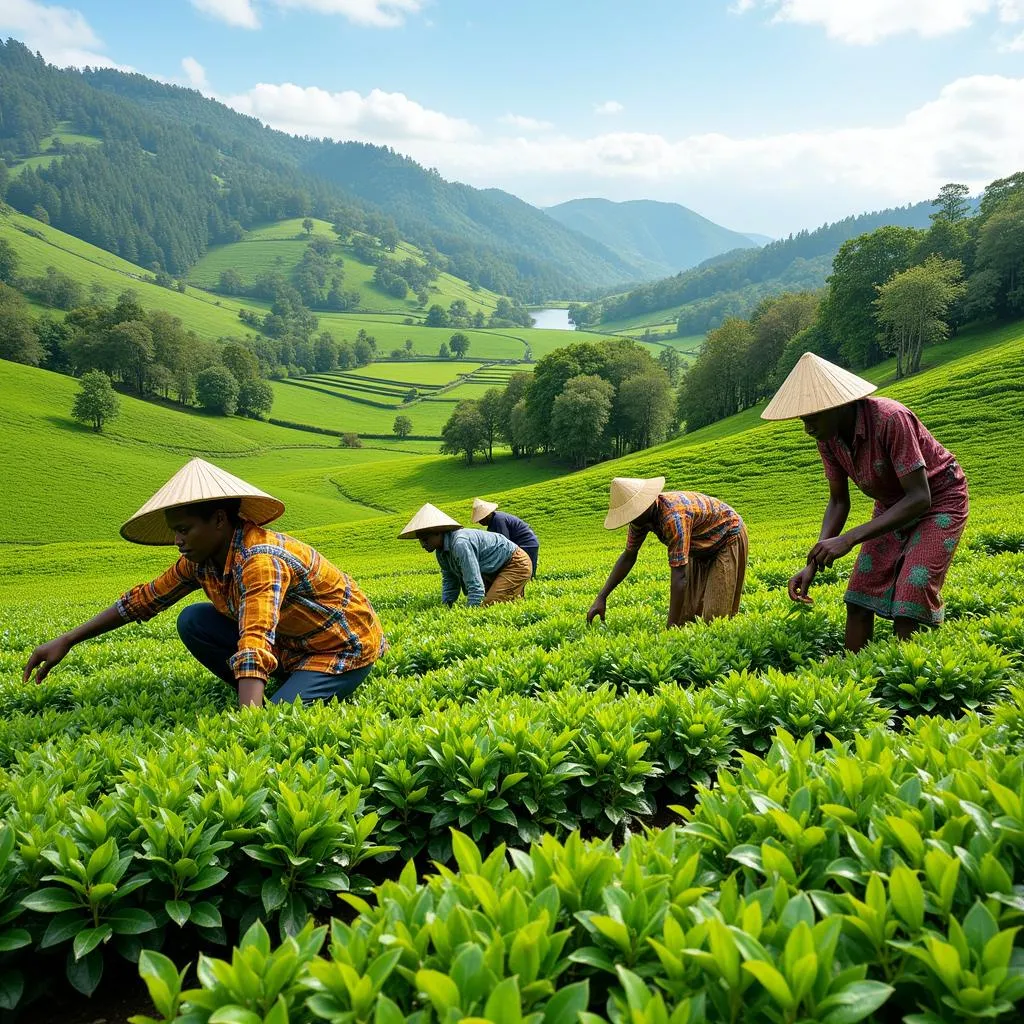African Agriculture Pesticides: A Balancing Act
African agriculture faces the complex challenge of increasing food production while minimizing the environmental impact of pesticides. This delicate balancing act is crucial for the continent’s future food security and ecological sustainability.
Pesticide use in African agriculture is a contentious issue. While pesticides can help control pests and diseases, boosting crop yields, their misuse can have detrimental effects on human health, biodiversity, and the environment. This article delves into the complexities of this issue, exploring the benefits, risks, and sustainable alternatives to pesticide use in Africa.
The Role of Pesticides in African Agriculture
Pesticide use in Africa is significantly lower than in other regions of the world. However, the continent’s growing population and the increasing pressure on agricultural land are driving a rise in pesticide use. This raises concerns about the potential for negative consequences if proper regulations and best practices are not implemented and followed. Smallholder farmers, who constitute the majority of agricultural producers in Africa, often lack access to information and training on safe pesticide handling and application. This knowledge gap can lead to inappropriate pesticide use, posing risks to both human health and the environment. Improving access to education and resources for these farmers is crucial for ensuring sustainable agricultural practices. After this paragraph, we’ll delve deeper into the risks associated with pesticide usage. But for now, it’s important to understand the role they play in protecting crucial crops like sugarcane, a key ingredient in many African countries sugarcane industries. These industries contribute significantly to the economies of several nations.
Farmers are often caught between the need to increase yields and the desire to protect the environment. Finding the right balance is key to sustainable agricultural development in Africa. The use of pesticides offers a temporary solution to pest problems, allowing for increased crop production, which can address immediate food security needs. However, the long-term consequences of pesticide overuse can be severe, negatively impacting soil health, pollinators like the African honey bee genus, and even the vital African grassland decomposers.
Risks Associated with Pesticide Use
The misuse of pesticides can have serious repercussions for human health, including acute and chronic poisoning, particularly among farmworkers who are directly exposed. Furthermore, pesticide residues in food can pose risks to consumers. Environmental impacts include contamination of water sources, soil degradation, and loss of biodiversity, affecting crucial ecosystems and even impacting African birds of prey through the food chain.
Mitigating the Risks of African Agriculture Pesticides
Several strategies can help mitigate the risks associated with pesticides. These include promoting Integrated Pest Management (IPM) techniques, which emphasize a combination of methods to control pests, minimizing reliance on chemical pesticides. Strengthening regulatory frameworks for pesticide registration and use is also crucial, ensuring that only approved pesticides are available and used according to guidelines. Additionally, raising awareness among farmers about the safe handling and application of pesticides through training and education programs is essential.
Sustainable Alternatives to Pesticides in African Agriculture
Exploring and adopting sustainable alternatives to chemical pesticides is paramount for the future of African agriculture. These alternatives offer environmentally friendly solutions for pest and disease control, promoting long-term ecological health. These include biological control, using natural enemies of pests to reduce their populations, and cultural practices, such as crop rotation and intercropping, to disrupt pest life cycles. Additionally, the development and use of biopesticides, derived from natural sources, offer a less harmful alternative to synthetic pesticides.
Conclusion
African Agriculture Pesticides are a double-edged sword. While offering potential benefits for increased crop yields, their misuse can have serious consequences. Embracing sustainable alternatives, strengthening regulations, and educating farmers are crucial for achieving a balance between food security and environmental protection in Africa. By implementing these strategies, we can contribute to a future where African agriculture thrives without compromising the health of its people and ecosystems.
FAQ
- What are the most common pesticides used in African agriculture?
- What are the health risks associated with pesticide exposure?
- How can farmers reduce their reliance on pesticides?
- What are the environmental impacts of pesticide use?
- What are some examples of sustainable pest management techniques?
- What is the role of government regulation in pesticide management?
- How can consumers support sustainable agriculture in Africa?
If you need further assistance, please contact us. Phone: +255768904061, Email: kaka.mag@gmail.com or visit us at Mbarali DC Mawindi, Kangaga, Tanzania. We have a 24/7 customer service team.

